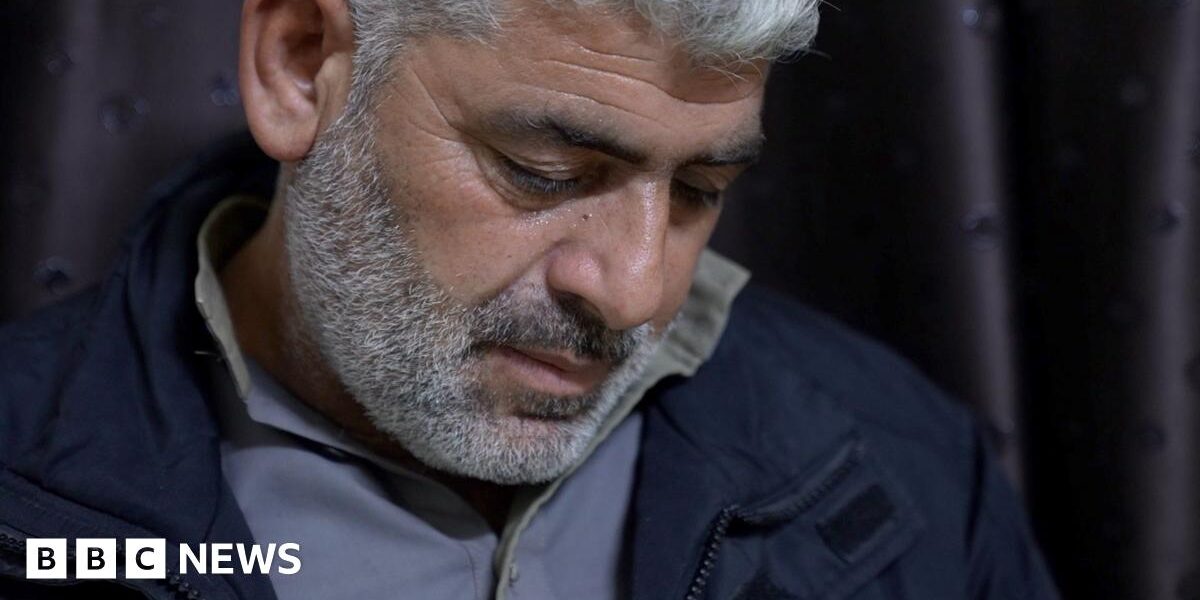Most of the deaths recorded since the Assad regime fell happened on former battle front lines, according to the White Helmets. Most of those killed were men.
Mr Talfah took us to two huge fields riddled with landmines. Our car followed his on a long, narrow and winding dirt road. It’s the only safe route to reach the fields.
Along the sides of the road, children run around the area. Hassan tells us they are from families who have recently returned. But the dangers of mines surround them.
As we get out of the car, he points to a barrier in the distance.
“This was the last point separating areas under the control of government forces from those held by opposition groups” in Idlib province, he tells us.
He adds that Assad forces planted thousands of mines in the fields beyond the barrier, to stop rebel forces from advancing.
The fields around where we stand were once vital farmlands. Today, they are all barren, with no greenery visible except for the green tops of land mines that we can see using binoculars.
With no expertise in clearing land mines, all the White Helmets can do for now is cordon these fields off, and hammer down signs along their borders warning people off.
They also spray-paint warning messages on dirt barriers and houses around the edges of the fields. “Danger – landmines ahead,” they read.
They lead campaigns to raise awareness among locals about the dangers of entering contaminated lands.
On our way back, we come across one farmer in his 30s who has recently returned. He tells us that some of the land belongs to his family.
“We couldn’t recognise any of it,” Mohammed says. “We used to plant wheat, barley, cumin and cotton. Now we cannot do anything. And as long as we cannot cultivate these lands, we will always be in poor economic condition,” he adds, clearly frustrated.





